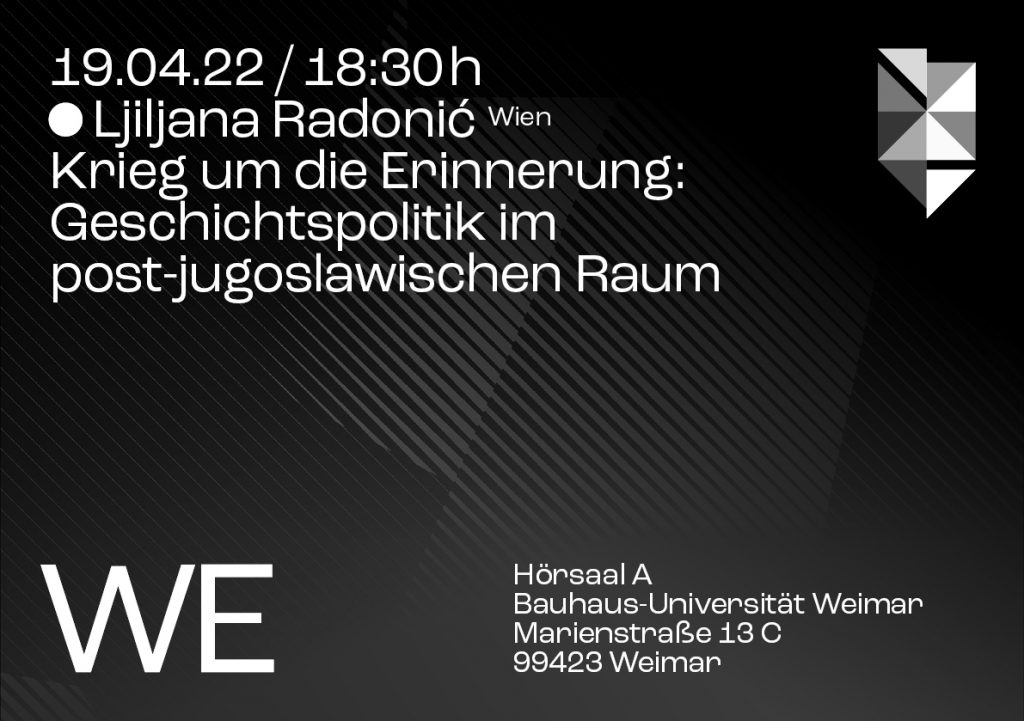Ljiljana Radonić (Wien): War about Remembrance: Politics of history in the Post Yugoslav Space
The wars of the 1990s in former Yugoslavia were to a certain extent also wars over remembrance and had a lot to do with the hardly reappraised past of World War II. Tito’s motto of “brotherhood and unity” left no room for coming to terms with the civil war between the Croatian Ustasha, the Serbian Chetniks and Tito’s partisans. The conflict between them was often fought on the backs of the civilian population.
The mass murder of the Serbian, Jewish and Roma population committed by the Ustasha in the “Independent State of Croatia” (NDH) did not fit the narrative. A resurgence of nationalism than found expression in a revival of the Ustasha and Chetniks. In the 1990s the Jasenovac concentration camp and Bleiburg, the symbol of the mass killings committed by the partisans against the fleeing Ustasha and members of the Croatian Home Guards, were equated with each other. In the sense of a “reconciliation” of all Croats even the victim numbers were manipulated under than-president Franjo Tudjman. A big chetnik revival happened after Milosevic’s death in Serbia. These Serbian monarchists, who had collaborated with the Italian fascists and Nazi Germany, replaced the partisans as figures of identification. In this war about remembrance, the remembrance of World War II and the wars of the 1990s are systematically linked, for example at the commemoration ceremonies in Bleiburg. The politics of history will be examined in this lecture using the example of museums and memorial sites.
Ljiljana Radonić leads the European Research Council (ERC) funded project “Globalised Memorial Museums. Exhibiting Atrocities in the Era of Claims for Moral Universals” at the Institute of Cultural Studies and History of Theatre at the Austrian Academy of Sciences (ÖAW). She conducted her habilitation project on World War II in post-socialist memorial museums at the ÖAW and in 2020 received the venia at the Institute of Political Science at the University of Vienna.
Since 2004 Ljiljana has been teaching on antisemitism theory as well as on memory conflicts in eastern and central Europe since 1989. In 2015 she held a visiting professorship for Critical Theory of the Society at the Gießen University (Germany), in 2017 at the Center for Jewish Studies at Graz University (Austria). She did her PhD on The War about Remembrance. Croatian Politics of History Between Revisionism and European Standards (Frankfurt: Campus 2010).
Universitätsbibliothek der TU und UDK Berlin
Fasanenstraße 88
Raum Bib 014
